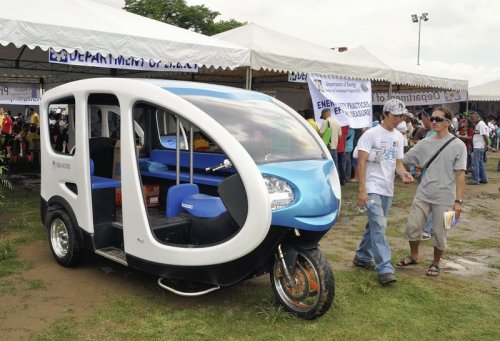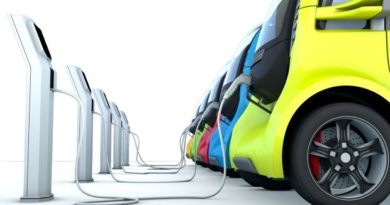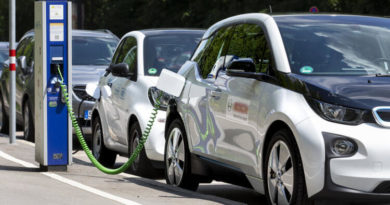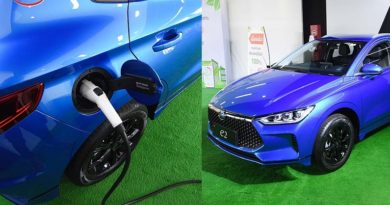Laos & Philippines Ready To Plug Into Electric Vehicles
The Philippines and Laos are keen to introduce electric vehicles and make EV production their key industry in the future, a development that may benefit auto-makers from Japan.
Japanese carmakers, world leaders in EV technology, see potentially profitable business opportunities in the Southeast Asian EV market.
The Philippines is about to embark on a major programme to replace its conventional gasoline-driven tricycle taxis with EVs. The tricycles are widely used for “share-rides” by ordinary people for transportation over short distances. With a loan from the Asian Development Bank, the Philippines will invest $500 million (Bt15.6 billion) by 2017 to replace about 100,000 of the 3.5 million gasoline-powered tricycles with electricity-powered tricycles.
Benjamin Demeterio, a 51-year-old tricycle taxi driver who is participating in the trial introduction of EVs, said they are comfortable to ride in and popular among passengers. He said his daily earnings have doubled with the EV he is using. The Philippine government and other entities concerned will soon hold international bidding to select business operators for the electric tricycle business. It is expected that at least 10 companies at home and abroad, including Terra Motors, a Tokyo-based start-up, will participate in the bidding.
The current mainstream model of tricycles is a remodelled motorbike with a 100cc engine and a sidecar. In many cases, the fuel for the tricycles is mixed with poor-quality gasoline and the exhaust gases the taxis emit are a major cause of urban air pollution.
In Laos, which has abundant hydroelectric power, electricity charges are half of those in Thailand. The Laos government is implementing a project to convert 40 per cent of the nation’s motorcycles, tricycles and four-wheel vehicles into EVs by 2020 with the cooperation of the Japan International Cooperation Agency. Laos aims to reduce its dependence on imported fuels such as gasoline by making EVs the mainstream vehicles in the future, when automobiles are expected to proliferate.
In the Philippines, an official of the Energy Department estimates 10,000 jobs will be created if the country domestically produces 100,000 electric tricycles.
Sohail Hasnie, an official in charge of EV popularisation at the ADB, voiced the hope that successful precedents in the Philippines would spread.
Japanese manufacturers hope to exploit demand in Southeast Asia by assisting efforts to popularise EVs. Terra Motors plans to produce 10,000 EVs in the Philippines if its tender to the Philippine government is successful. But hurdles remain before EVs can spread widely in the region. One hurdle is cost. EVs currently cost twice as much as gasoline-powered cars, which are priced at about $2,000 each. Another challenge will be to build enough facilities to recharge EVs.
Source: The Nation




